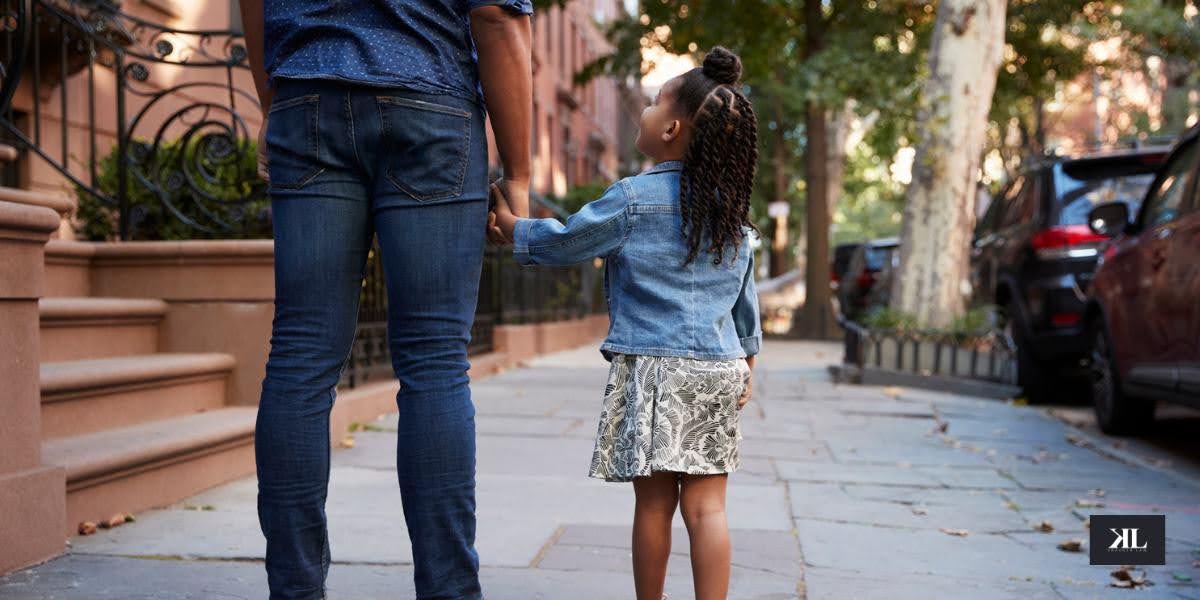Restraining orders are serious legal documents meant to protect people from harm or harassment. Breaking, or violation of restraining orders, can lead to some pretty tough consequences. From fines to possible jail time, it’s not something you want to take lightly. Whether you’re the person protected by the order or the one accused of breaking it, understanding the legal consequences and what steps to take next is super important. In this post, we’ll explain what happens when a restraining order is violated and how to handle it if it happens to you.
What Is a Restraining Order?
A restraining order, sometimes called an order of protection, is a legal decision made by a court to protect someone from certain actions by another person. These orders are usually given in situations like domestic violence, stalking, or harassment.
In New York and New Jersey, a restraining order might require someone to:
-
Avoid all contact (in person, over the phone, by email, or even on social media)
-
Stay away from someone’s home, job, or other places they go often
-
Follow other rules set by the court
If someone breaks these rules, it’s called a violation of a restraining order, and it’s treated very seriously, even if the violation seems small or accidental.
What Happens If You Violate a Restraining Order?
Violating a restraining order is a serious legal matter that can lead to immediate consequences and long-term effects. Whether intentional or accidental, breaking the rules of a restraining order can cause significant problems in your personal and legal life. Let’s break down what can happen if a restraining order is violated and answer some common questions about the consequences.
Criminal Charges
Is violating a restraining order a crime?
Yes, the violation of restraining orders is a criminal offense. It’s a direct violation of a court order, and depending on the specifics, it could be classified as a misdemeanor or even a felony. This means that even seemingly minor actions, like sending a text or trying to contact the protected person indirectly, can lead to criminal charges. Courts treat these violations seriously, as they are considered defiance of the law.
Examples of actions that can result in charges:
-
Calling or texting the protected person, even to apologize or explain
-
Visiting their home, workplace, or any location they frequent
-
Sending messages through a mutual friend or family member
-
Reacting to their social media posts by liking, commenting, or sharing
Fines and Jail Time
What penalties could you face for violation of restraining orders?
The penalties depend on the severity of the violation and whether it’s a first-time or repeat offense. Here’s what you could face:
-
Fines:
Fines can range from a few hundred to thousands of dollars, depending on the jurisdiction and the nature of the violation. -
Jail Time:
Jail sentences can vary widely:-
For misdemeanors: Jail time might range from a few days to a year.
-
For felonies: Sentences can extend to several years, especially if the violation involved violence or repeated offenses.
-
-
Probation:
In some cases, courts may sentence you to probation instead of jail. While this allows you to avoid incarceration, probation often comes with strict conditions, such as regular check-ins with a probation officer, avoiding certain places or people, and attending counseling or anger management programs.
Impact on Family Court Cases
How does violating a restraining order affect custody or divorce cases?
If you’re involved in family law matters like a custody battle or divorce, violating a restraining order can have significant consequences:
-
Child Custody and Visitation Rights:
Courts may view a violation as a sign that you’re not able to follow rules or that you could be a potential danger to your child. This can lead to:-
Reduced visitation rights
-
Supervised visitation
-
Loss of custody
-
-
Divorce Proceedings:
In contentious divorces, violating a restraining order can negatively affect how the court views your case, potentially influencing property division, alimony, or other outcomes.
What if the protected person tries to contact me first?
Even if the protected person reaches out, you are still legally obligated to follow the terms of the restraining order. Responding or engaging with them could still be considered a violation. Always consult your lawyer in such situations.
Long-Term Consequences
Does a restraining order violation stay on your record?
Yes, a conviction for violating a restraining order can remain on your criminal record. This can create challenges in many areas of life, including:
-
Employment:
Many employers run background checks, and a criminal record can make it harder to get hired. -
Housing:
Landlords often look at criminal records when deciding whether to rent to someone. -
Reputation:
A criminal record can harm your personal relationships and community standing, particularly if the violation involves domestic violence or harassment.
Can a restraining order violation be expunged?
In some cases, it might be possible to have the conviction removed from your record, but this depends on the laws in your state and the specific details of your case. You would need to consult an attorney to explore your options.
Questions You Might Have
1. What happens if I accidentally violate a restraining order?
Accidental violations still count as violations. For example, if you unknowingly enter a place where the protected person is, you could face legal consequences. The court will consider whether the violation was intentional, but it’s essential to act immediately:
-
Leave the situation as soon as you realize it.
-
Document what happened and inform your attorney.
-
Avoid further contact.
2. Can the protected person drop the restraining order?
In some cases, the protected person may request that the order be lifted, but it’s up to the court to decide. Until the court officially removes the order, you are required to follow its terms.
3. What should I do if I’ve been accused of a violation?
If you’re accused of violating a restraining order:
-
Stay calm and avoid any further contact with the protected person.
-
Gather evidence that supports your side of the story, such as witnesses or communication logs.
-
Contact an experienced attorney immediately to help you handle the situation.
Violating a restraining order can lead to criminal charges, fines, jail time, and long-term consequences that affect your personal and professional life. Even unintentional violations can have serious repercussions, so understanding the terms of the order and following them is critical.
How Do People Violate Restraining Orders?
Restraining order violations happen more often than you might think, and many times, they’re unintentional. While some people deliberately ignore the rules, others simply misunderstand what the order allows or prohibits. Unfortunately, even accidental violations can have serious consequences. Let’s dive into how violations happen and what you can do to avoid them.
Common Ways People Violate Restraining Orders
Here are the most common ways people end up violating restraining orders:
1. Running into the Protected Person
-
What happens: You bump into the protected person in public—at a grocery store, gym, or another common area—and don’t leave immediately.
-
Why this is a violation: Most restraining orders include a clause requiring you to stay a specific distance away from the protected person, even in public. Staying in the same space could count as a violation.
-
What to do: If you accidentally encounter the protected person, leave the area immediately and avoid any interaction. Document the encounter (time, location, and details) and inform your lawyer.
2. Third-Party Communication
-
What happens: You ask a friend or family member to pass a message to the protected person on your behalf.
-
Why this is a violation: Most restraining orders explicitly prohibit indirect communication. Using someone else to relay messages is considered an attempt to bypass the order.
-
What to do: Avoid involving third parties entirely. If you need to communicate for a valid reason (e.g., co-parenting arrangements), consult your lawyer to be sure you’re following the proper legal steps.
3. Social Media Activity
-
What happens: You like, comment on, or share the protected person’s posts on platforms like Facebook, Instagram, or Twitter—or send them direct messages.
-
Why this is a violation: Digital interactions count as contact. Even actions that seem harmless, like “liking” a photo, can be interpreted as a violation.
-
What to do: Block the protected person on all social media platforms to avoid accidental contact. This reduces the risk of interacting with their posts or being tagged in something involving them.
4. Accidental Communication
-
What happens: You call, text, or email the protected person without realizing it violates the order—for example, responding to a message they sent you.
-
Why this is a violation: Restraining orders require you to avoid initiating or continuing communication, even if the protected person reaches out first.
-
What to do: Do not respond, even if the protected person contacts you. Save any communication they initiate and share it with your lawyer immediately.
5. Being Near Restricted Locations
-
What happens: You go near a place you didn’t realize was off-limits, such as their home, workplace, or a school their child attends.
-
Why this is a violation: Restraining orders often list specific places you must stay away from, and showing up—even accidentally—can result in legal trouble.
-
What to do: Carefully review the restraining order for any restricted locations. Avoid these places completely, even if you have no intention of interacting with the protected person.
What Should You Do If You’re Accused of Violating a Restraining Order?
Being accused of violating a restraining order can feel overwhelming and stressful. While it’s important to take the accusation seriously, it’s equally important not to panic. Here’s what you should do:
1. Understand the Rules of the Order
-
Why this is important: Misunderstanding the terms of a restraining order is one of the most common reasons people violate them. The order will outline exactly what you can and cannot do.
-
What you should do:
-
Read the order carefully.
-
Look for details about restricted actions, locations, and communication rules.
-
If anything is unclear, ask your lawyer to explain it.
-
2. Get Legal Help
-
Why this is important: Violating a restraining order is a criminal offense. An experienced lawyer can guide you through the legal process, help you understand your rights, and build a strong defense.
-
How a lawyer can help:
-
Evaluate the evidence against you.
-
Represent you in court.
-
Negotiate on your behalf to minimize penalties.
-
-
Where to start: Krasner Law works in family law and can help you handle accusations of restraining order violations with care and professionalism.
3. Collect Evidence
-
Why this is important: If you believe the accusation is false or exaggerated, evidence can help prove your case.
-
What counts as evidence:
-
Witness statements from people who saw what happened.
-
Texts or emails that show the situation wasn’t intentional or misunderstood.
-
Security footage or photos from the location where the violation allegedly occurred.
-
-
What to do: Share any evidence you have with your lawyer. This can be crucial in proving your innocence.
4. Avoid Further Contact
-
Why this is important: Any additional contact—even if you’re trying to explain or apologize—could make your situation worse.
-
What you should do:
-
Do not attempt to communicate with the protected person, even through a third party.
-
Let your lawyer handle all interactions with the court and opposing parties.
-
-
What if they contact you? If the protected person reaches out, do not respond. Instead, save the message or document the contact and inform your lawyer.
5. Show Up to Court
-
Why this is important: Missing a court date can lead to more serious consequences, like an arrest warrant or additional charges.
-
What you should do:
-
Mark your court date on your calendar and plan to attend.
-
Work with your lawyer to prepare a strong defense and present your side of the story.
-
-
Pro tip: Dress appropriately for court and remain respectful to the judge and others involved in the case.
Frequently Asked Questions
Can I contact the protected person if they contact me first?
No. Even if the protected person initiates contact, responding is still considered a violation of the restraining order. Save the communication and share it with your lawyer instead.
What if I accidentally run into the protected person in public?
Leave immediately. Document the encounter (time, place, and what happened) and inform your lawyer. As long as you take immediate steps to leave, courts may view it as an unintentional occurrence.
What if I didn’t know I was violating the restraining order?
Lack of awareness doesn’t excuse a violation. Courts expect you to fully understand and follow the order. Consult your lawyer to address the situation and avoid further violations.
Violating a restraining order—even accidentally—can lead to serious legal trouble. Understanding the terms of the order, avoiding risky situations, and working with an experienced lawyer are the best ways to protect yourself. If you’ve been accused of violating a restraining order, don’t wait—contact Krasner Law today. We’ll help you navigate the process and fight for the best possible outcome.
How Krasner Law Can Support You
At Krasner Law, we know how overwhelming legal issues like this can be. Whether you need help enforcing a restraining order or defending yourself against accusations, we’re here to provide the personalized support you need. We’ll work with you to understand your situation and come up with the best plan to move forward.
Final Thoughts
A violation of a restraining order can lead to serious consequences, but understanding the situation and taking the right steps can make all the difference. If you’re dealing with this issue or need help with a family law case, don’t wait to get the guidance you need.
Reach out to Krasner Law today to learn how we can help. Our team is ready to answer your questions and provide the support you deserve.







